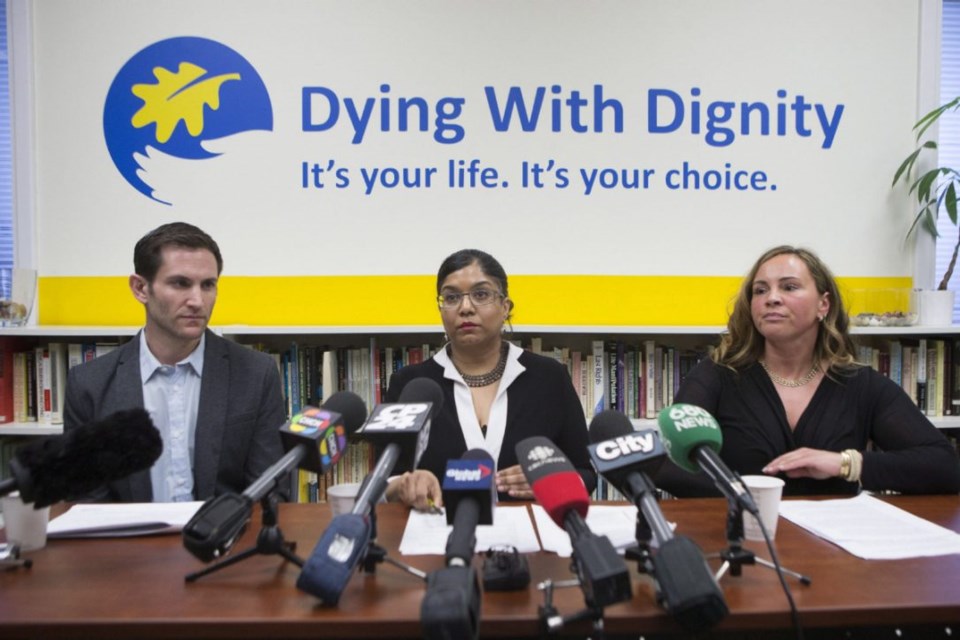THUNDER BAY -- New provincial legislation allows the St. Joseph's Care Group not to provide assisted death services to its patients on religious grounds.
Ontario's Bill 41 officially became law on Thursday, granting faith-based organizations the right not to perform assisted death procedures despite a Supreme Court of Canada decision last year that ruled euthanasia to be a charter right.
The Catholic St. Joseph's operates two long-term care facilities in Thunder Bay as well as a host of chronic disease management and palliative care services.
Physician assisted death was federally legalized in June. Since then, two of the five local people who have requested the procedure have been in St. Joseph's care. Those patients have been transferred home care services and could be referred to secular primary care providers.
"The bishop in Thunder Bay has been very clear to us around not abandoning our patients," said St. Joseph's chief of staff, Geoff Davis.
"We are there to support our patients and support their needs and wishes, whatever they are."
Davis stressed his institution is not denying patients care or their right to die but is protecting its own right not to violate its religious principles. He's confident patient transfer is not interrupting or impacting the quality of patient care.
The Thunder Bay Health Sciences Centre changed its policy to accommodate the procedure in June.
"We do our best to mitigate of course," said Cathy Covino, the regional hospital's senior director of quality and risk management.
"If you're leaving St. Joe's and having to go anywhere, it interrupts your continuum of care but we're working with them and working with the community to mitigate that the best we can."
The assisted dying advocacy group Dying With Dignity has launched its Shine A Light map, which illustrates facilities across Canada that are -- and aren't -- performing the procedure. St. Joseph's puts a red marker on its map over Thunder Bay.
"It is so bizarre and so bewildering to me that we, as taxpayers, are being told we must still give our tax dollars to these institutions who will deny us our charter right," said Dying With Dignity past co-president Sheila Noyes, who is based in Thunder Bay.
"When we go to the hospital, we don't go for religious care. We go for medical care."
Noyes pointed out the legislation not only allows facilities not to publicly disclose their policies on performing the procedure but doesn't require records to be kept on who is allowed or denied a medically assisted death and in which institutions. That data is essential, she argued, to determine whether or not the law is effective.
She argued both the federal and provincial governments have narrowed the scope of the Supreme Court's legal interpretation.
"The Supreme Court of Canada had a purpose and that was to reduce suffering," Noyes said, claiming 80 per cent of Canadians support citizen rights to make decisions that safely end their own lives.
"The (federal) Liberal government came in and restricted that to one group, a subgroup of those who are terminally ill. That's not what the Supreme Court had in mind. Now Ontario is stepping into this and saying, in fact, institutions now also have the right to restrict and deny patients a medically assisted death on the premises."
A spokesman for the North West Local Health Integration Network said the LHIN is working with the Ministry of Health and Long Term Care to ensure patients across the sparsely-populated region have access to assisted dying services close to where they live.
